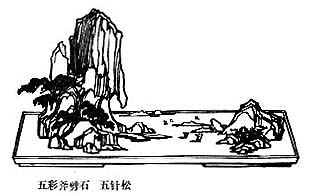Lun Yu 
 – The Analects of Confucius
– The Analects of Confucius
The Master discusses with his disciples and unveil his preoccupations with society. Tr. Legge (en), Lau (en) and Couvreur (fr).
Lunyu XVII. 9. (456)
Benefits derived from studying the Book of Poetry.
1. The Master said, "My children, why do you not study the Book of Poetry?
2. "The Odes serve to stimulate the mind.
3. "They may be used for purposes of self-contemplation.
4. "They teach the art of sociability.
5. "They show how to regulate feelings of resentment.
6. "From them you learn the more immediate duty of serving one's father, and the remoter one of serving one's prince.
7. "From them we become largely acquainted with the names of birds, beasts, and plants."
Legge XVII.9.
The Master said, 'Why is it none of you, my young friends, study the Odes? An apt quotation from the Odes may serve to stimulate the imagination, to show one's breeding, to smooth over difficulties in a group and to give expression to complaints. 'Inside the family -there is the serving of one's father; outside, there is the serving of one's lord; there is also the acquiring of a wide knowledge of the names of birds and beasts, plants and trees.'
Lau [17:9]
Le Maître dit : « Mes enfants, pourquoi n'étudiez-vous pas le Livre des Odes ? Il nous sert à exciter les sentiments, à observer d'un œil critique. Il nous apprend à nous comporter en société, à servir notre père et servir notre prince. Il nous fait connaître beaucoup d'oiseaux, de quadrupèdes, de plantes et d'arbres. »
Couvreur XVII.9.

The Analects of Confucius – Lun Yu XVII. 9. (456) – Chinese off/on – Français/English
Alias the Lunyu, the Lun Yü, the Analects, les Entretiens du maître avec ses disciples.
The Book of Odes, The Analects, Great Learning, Doctrine of the Mean, Three-characters book, The Book of Changes, The Way and its Power, 300 Tang Poems, The Art of War, Thirty-Six Strategies
Welcome, help, notes, introduction, table.
Index – Contact – Top























